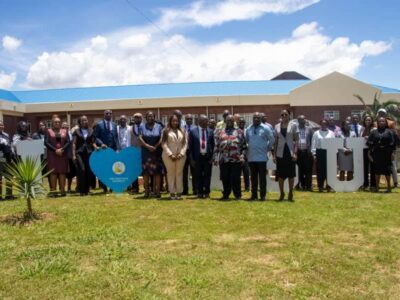The First Secretary of the Russian Embassy in Zimbabwe, Ms. Anastasia Belyayeva, delivered a compelling keynote address highlighting a new frontier in cybersecurity cooperation between Russia and Zimbabwe, at the recently held TechnoMag Tech Convergence Fora. Her speech underscored how strategic international partnerships and local innovation can shape a safer, more resilient digital future for the nation.
Belyayeva noted that in today’s interconnected world, cybersecurity is no longer a technical concern but a core pillar of national security. As digital transformation accelerates, Zimbabwe — like many nations — faces a surge in cyber threats, including hacking, cybercrime, and data breaches. These, she said, demand a proactive and strategic response, underpinned by knowledge, technology, and international collaboration.
She spotlighted the Cybersecurity Education and Training Programme for Specialists of the Republic of Zimbabwe, a milestone initiative launched through a partnership between the Cyberspace Foundation, Russia’s COVID company, and Zimbabwe’s Rizvil Digital. The program was officially opened in March as part of a broader strategic cybersecurity project designed to build the country’s human capital and institutional capacity in the digital defense space.
“This initiative goes beyond education — it is a strategic investment in Zimbabwe’s digital sustainability, human potential, and economic growth,” Belyayeva said. “It represents the shared commitment of Russia and Zimbabwe to strengthen cyber resilience in an increasingly interconnected world.”
The partnership stems from a bilateral intergovernmental agreement signed in 2023, and was further reinforced following a meeting between President Vladimir Putin and President Emmerson Dambudzo Mnangagwa in Moscow earlier this year. The program’s launch marked the practical implementation of this agreement, signaling Russia’s growing role in helping Zimbabwe develop a robust cybersecurity ecosystem.
As part of the program, Zimbabwean students are trained in the fundamentals of cybersecurity, digital forensics, and artificial intelligence-driven cyber defense. They also participate in simulated cyber exercises and international information security competitions, ensuring they gain both theoretical and practical exposure.
The project has already seen remarkable interest, with over 3,000 young Zimbabweans enrolled, and a target to reach 10,000 participants — a step toward building a new generation of cybersecurity professionals capable of protecting Zimbabwe’s digital infrastructure. Scholarships have also been awarded to outstanding students through the Cyberspace Foundation, emphasizing inclusivity and opportunity for the country’s tech-driven youth.
Belyayeva highlighted that the collaboration goes beyond training, laying the groundwork for a National Cybersecurity Monitoring Centre that will assess and strengthen Zimbabwe’s information infrastructure. This center is expected to play a key role in the country’s efforts to establish a self-sustaining and secure digital ecosystem.
The initiative reflects a growing recognition that cybersecurity readiness is a fundamental enabler of digital transformation, economic stability, and technological sovereignty. As the world navigates an era of data-driven economies and AI-powered systems, Zimbabwe’s partnership with Russia signals a strategic move toward securing its digital borders while nurturing a workforce ready to defend them.
For Zimbabwe’s tech community, the message was clear: cybersecurity is the new frontier of innovation, collaboration, and national resilience — and investing in knowledge today will define the strength of the nation’s digital tomorrow.














Comments